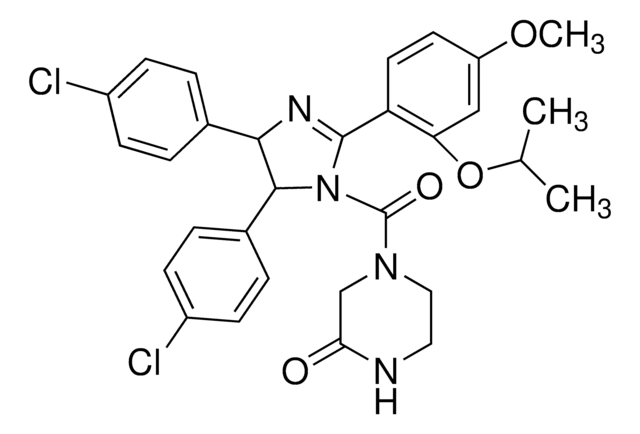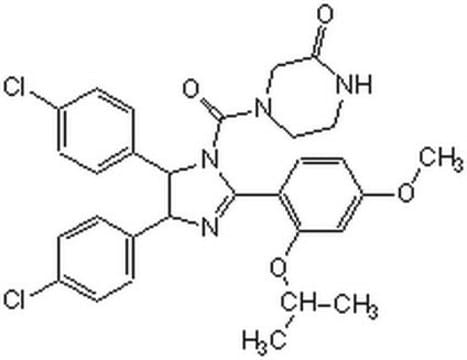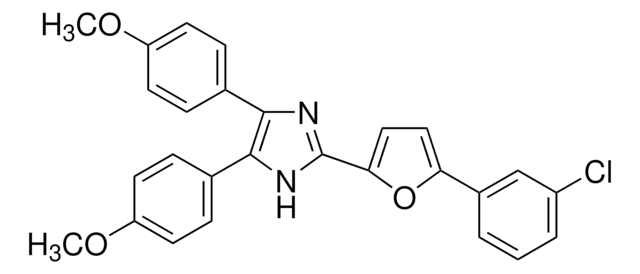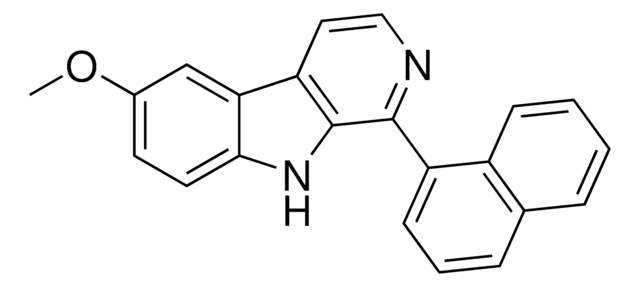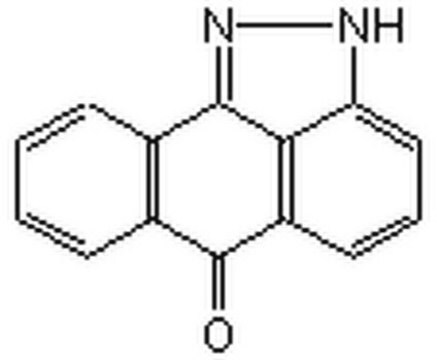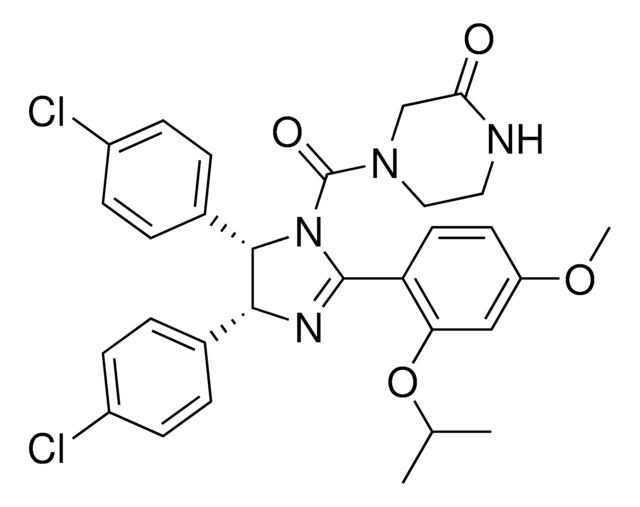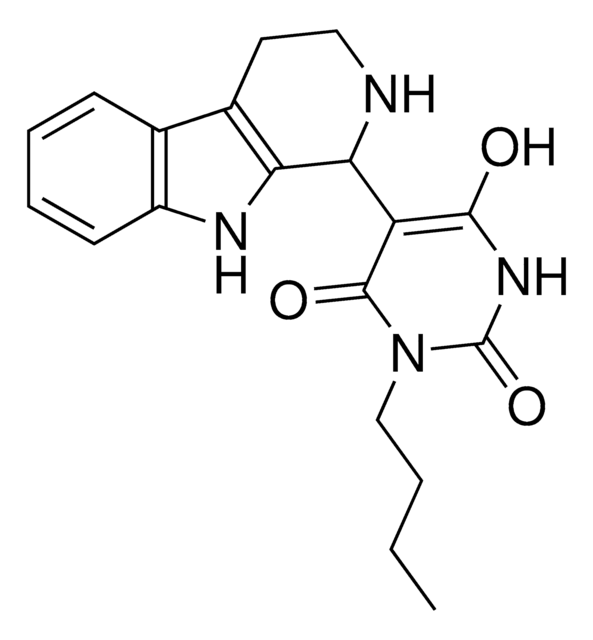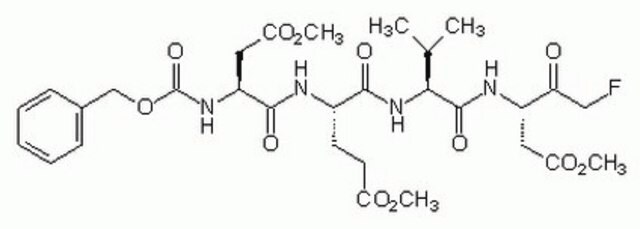444143
MDM2 Antagonist, Nutlin-3, Racemic
The MDM2 Antagonist, Nutlin-3, Racemic, also referenced under CAS 548472-68-0, controls the biological activity of MDM2. This small molecule/inhibitor is primarily used for Cancer applications.
Sinónimos:
MDM2 Antagonist, Nutlin-3, Racemic, MDM2 Inhibitor IV
About This Item
Productos recomendados
Quality Level
assay
≥98% (TLC and HPLC)
form
solid
manufacturer/tradename
Calbiochem®
storage condition
OK to freeze
protect from light
solubility
DMSO: 25 mg/mL
ethanol: 25 mg/mL
shipped in
wet ice
storage temp.
−20°C
InChI
1S/C30H30Cl2N4O4/c1-18(2)40-25-16-23(39-3)12-13-24(25)29-34-27(19-4-8-21(31)9-5-19)28(20-6-10-22(32)11-7-20)36(29)30(38)35-15-14-33-26(37)17-35/h4-13,16,18,27-28H,14-15,17H2,1-3H3,(H,33,37)
InChI key
BDUHCSBCVGXTJM-UHFFFAOYSA-N
General description
Biochem/physiol Actions
MDM2
Packaging
Warning
Reconstitution
Other Notes
Vassilev, L.T., et al. 2004. Science303, 844.
Legal Information
Storage Class
11 - Combustible Solids
wgk_germany
WGK 3
flash_point_f
Not applicable
flash_point_c
Not applicable
Certificados de análisis (COA)
Busque Certificados de análisis (COA) introduciendo el número de lote del producto. Los números de lote se encuentran en la etiqueta del producto después de las palabras «Lot» o «Batch»
¿Ya tiene este producto?
Encuentre la documentación para los productos que ha comprado recientemente en la Biblioteca de documentos.
Nuestro equipo de científicos tiene experiencia en todas las áreas de investigación: Ciencias de la vida, Ciencia de los materiales, Síntesis química, Cromatografía, Analítica y muchas otras.
Póngase en contacto con el Servicio técnico